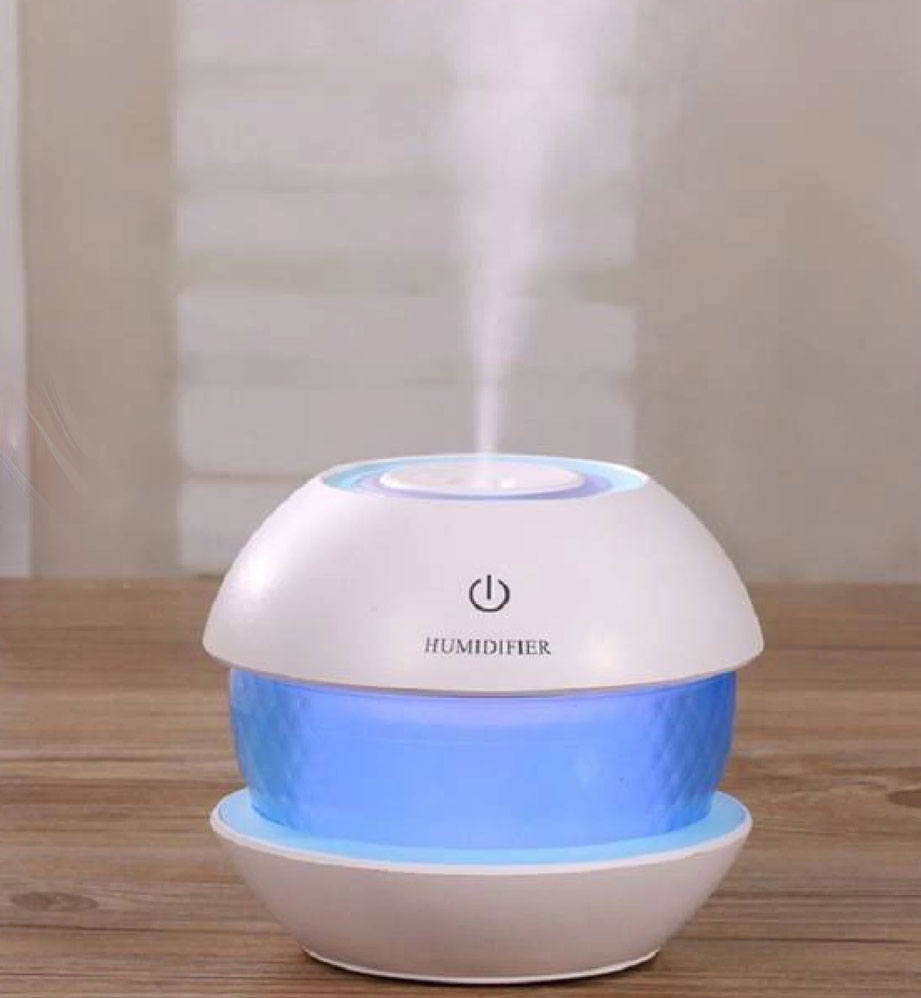AIR QUALITY CONTROL
How Humidifiers Help!
Throughout the chillier winter months, we tend to keep our heat up and our homes sealed. While this is great for keeping us nice and warm, it also is the beginning of winter’s poor indoor air quality. There are several issues you can have by having poor indoor air quality, but do you know what these are or how to fix them? At Air Rescue, we want you to be able to stay healthy and warm throughout the winter, so we’re sharing some ways to improve your indoor air quality this winter!
Dry air is colder than warm and, so adding a humidifier to your home will make your house feel more comfortable. Live plants also increase the temperature in your house by raising the temperature.
Consider adding humidifiers or air cleaners to your HVAC system. Air Rescue can help your home or office be a place to find relief from these symptoms and discomfort. As pollen finds its way into your home or office on your clothes and pets and through open doors and windows, you need a way to rid your home of this allergen. Quality can install humidifiers to control moisture all year long as well as duct cleaning to remove these allergens and others from the air in your home.

Why is Indoor Air Quality So Important?
You breathe in about 11,000 liters of air per day allowing you to live life and do all the cool things that you do, but not all air is created equal. If you’ve been in a room without ventilation or a functioning air conditioning system, you know how stale and unpleasant the air can get. But why is it so important? Keep reading to learn about a handful of benefits that come with maintaining good indoor air quality.
1. Easy Breathing
Breathing is, for the most part, an unconscious action. You do it without thinking about it much, but if your home’s air quality is low, breathing can feel like trying to suck air through a coffee stirrer. Even if you don’t realize it, your body does. Surviving on shallow breaths puts a lot of stress on your body, especially your heart and lungs, making even climbing a flight of stairs a physically tiring task. With clean air, you can take big, easy breaths and give your body the oxygen it needs.
2. Better Sleep
Our respiration changes when we’re asleep such that our breathing rate decreases and becomes much steadier. But during REM sleep, breathing rate increases and fluctuates as much as it would when you’re awake.
So as important as air is when you’re awake, it’s just as important when you’re asleep. Try to sleep with something covering your face or mouth. You definitely won’t be comfortable and will spend most of the night tossing and turning. Respiratory irritation and airborne allergens affect the quality of your sleep, leading to sleep-disordered breathing problems such as sleep apnea. With clean indoor air, you won’t have to worry about breathing problems, so you can wake up feeling refreshed.
3. Elimination of Allergens
Reportedly, somewhere between 10 and 30 percent of the population suffers from allergic rhinitis—what we know as hay fever—which is characterized by sneezing, congestion, an itchy throat, and irritated eyes. Hay fever is caused by allergens, which are airborne particles that you may be allergic to. The most common of which include:
Dust
Mold Spores
Pollen
Animal dander
Cockroach debris
These allergens float in the air but eventually fall onto flat surfaces, leaving a thin, seemingly furry film on surfaces. The heavier the allergen, the faster it settles out of the air and onto a flat surface.
Eliminating allergens ensures that you’re not sneezing up a storm or otherwise suffering in your own home. Aside from frequent vacuuming, maintaining your home’s ventilation and air conditioning system keeps allergens at bay, filtering out the particles from outdoor air to give you just the good stuff. Having the right type of filtration and having it properly installed, will make a big difference on how clean your air is.
4. Reduced Odors
Whether you cook a lot of fish, forget to clean your cat’s litter box, or have housemates who eat exclusively bean burritos, odors are always a potential problem. The smell of onion breath or B.O. isn’t anyone’s cup of tea, but bad smells also have a very real effect on your mood, thoughts, behaviors, and dreams. Bad odors can leave you uncharacteristically grumpy and irritable. On the other hand, good smells—like chamomile, flowers, and citrus—improve your mood, reduce stress, and lower your heart rate.
Furthermore, odors are about as distracting as someone slurping their food. If you’re trying to study or get work done at home, you have to try that much harder to focus on your work because of the pungent, musty mystery smell creeping through your home. You shouldn’t have to walk through your home with a clothespin on your noise.
Traditional filters, even HEPA filters, will not remove odor and sprays may just mask them for a while. The key is to break down the organic material (VOC’s) in the air that causes the smell in the first place. UV filters with a special catalyst like this Pure Air do just that.
5. Balanced Humidity
Good indoor air quality also means a good balance of humidity. Humidity, which is the amount of water in the air, affects all aspects of your immediate environment. Too much humidity makes your home feel stuffy and moist, which makes breathing feel heavy. The extra moisture causes mold growth and increased dust mite populations while also attracting pests.
At the same time, not enough humidity makes for cold and dry conditions that lead to irritated skin, static shock, frequent nosebleeds, and completely uncooperative hair.
Air conditioning, ventilation, and humidifiers or dehumidifiers balance humidity for better health and comfortable living. Some thermostats can display the current percentage of humidity in your home. Ideally, your indoor humidity should be around 45 percent.
6. Reduced Energy Costs
The steps required to maintain your air quality—improving airflow and ventilation, maintaining humidity and carbon dioxide levels—all go toward optimizing your HVAC system and ensuring that it doesn’t work too hard to keep your home healthy. Efficiency inevitably leads to reduced costs on your utility bill.
You shouldn’t be getting sick from the air in your own home or business, so take the necessary steps to ensure good indoor air quality. Happy breathing!
7. The Thermostat
The thermostat is the brains of your house—it tells your heating and air conditioning system when to turn on and when to turn off using an ideal temperature that you set. Air Rescue carries top-of-the-line programmable and non-programmable thermostats to help attain the condusive Air Quality your home and business deserves.
Using a programmable, energy-saving thermostat will save wear and tear on your high-efficiency heating and cooling equipment. It works efficiently by properly cycling the equipment and the set-it-and-forget-it programming makes energy savings automatic. This precise control delivers the comfortable temperature you want while using the energy most efficiently.







